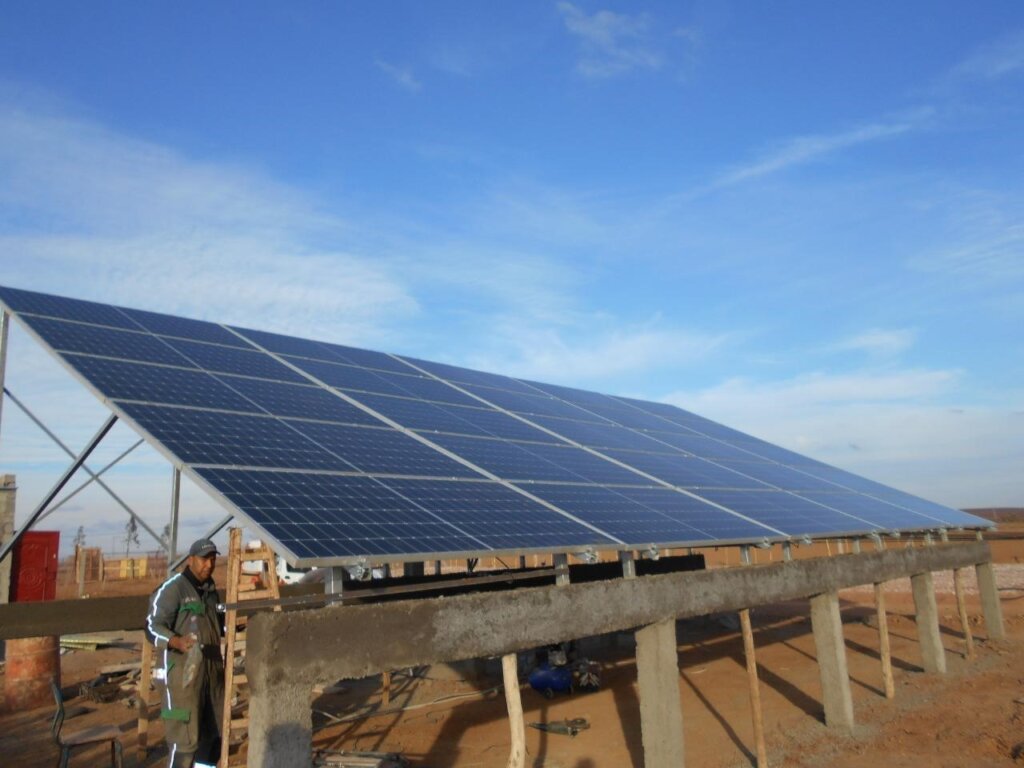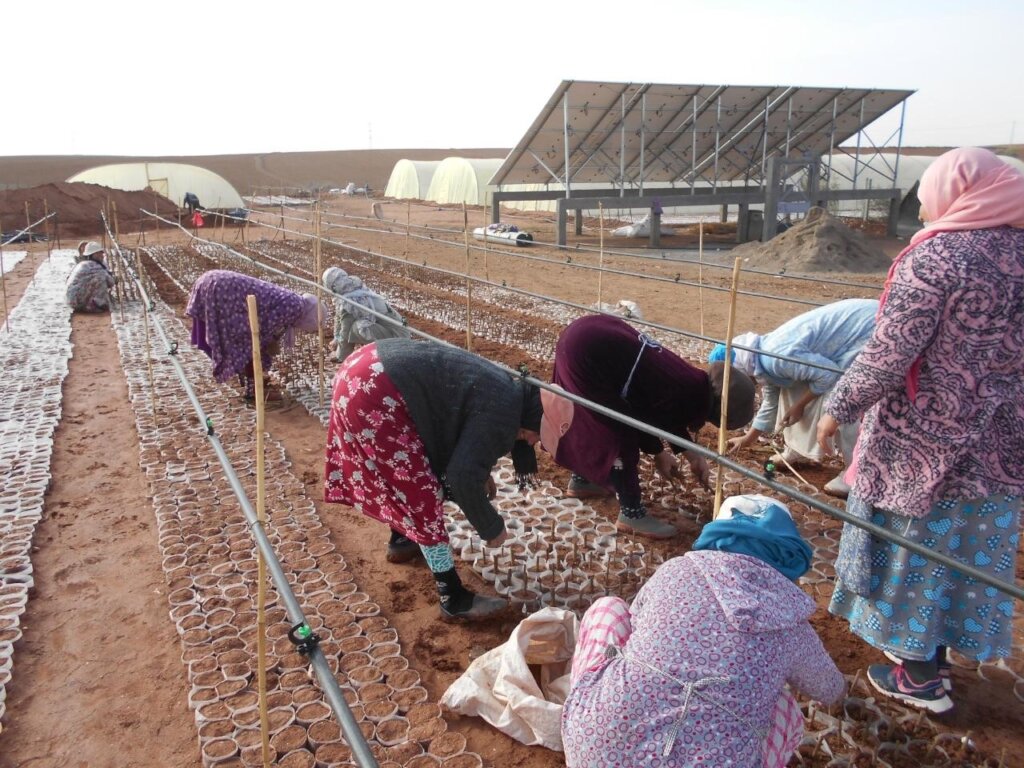By Aleksander Esmann | HAF intern
On December 16, 2022, Germanwatch, in cooperation with Power Shift Africa, CESAO-AI and Misereor, organized a webinar about “Renewable Energy Transitions in Africa.” The webinar was intended as a forum for actors in the renewable energy sector in Africa to discuss challenges, issues, and policies and to exchange their experiences and knowledge. The role of civil society and government in facilitating the transition to green energy sources was especially discussed.
Access to clean energy is a key requisite for development. At present, an estimated 600 million Africans lack access to electricity, highlighting the need for urgent action to supply the continent with affordable, sustainable, and reliable energy access. Despite the energy access challenges, African countries have vast renewable and fossil energy resources. Africa's renewable energy potential is substantially larger than the continent's current and projected power consumption and, therefore, could easily meet the expected and necessary growth in energy services, eliminate energy poverty, and power a green, renewable-based economy.
As a latecomer to building foundational energy infrastructure, the African continent has the opportunity to leapfrog fossil fuelled development and transition directly to modern, renewable energy systems and green economies. Having said that, the continent’s countries are in different stages of their energy transitions with country-specific starting points. Understanding the various starting points is critical when developing energy pathways that are able to deliver on economic and social development goals.
Currently, Morocco imports approximately 90% of its entire energy, and fossil fuels still make up the majority of Morocco’s energy mix.
The government is pushing to reduce the country's dependence on energy imports and fossil fuels by launching an ambitious campaign to make use of Morocco’s huge potential for solar and wind energy. Large-scale projects like the Noor Ouarzazate Solar Complex, which with an energy production of 580 MW is the most powerful solar power plant in the world, or the wind farm in Tarfaya, which has 131 wind turbines that each produce 2.5 MW, have rapidly advanced the renewable energy sector in Morocco.
However, there is still a long way to go. One of the main criticisms of Morocco´s renewable energy strategy is that the government's strategy focuses too much on large-scale projects and that it neglects remote areas. Rural villages are often left behind and do not benefit from the green energy or the economic opportunities that come with the construction of power plants. HAF’s strategy regarding renewable energies focuses exactly on these points.
HAF applies a participatory approach when implementing projects. It involves local communities in every step of the process, from the decision of what projects will be implemented to guaranteeing the sustainability and long-term success of projects. Local people are asked about their needs, wishes, and opinions on how to best implement the projects. This way, HAF ensures that the beneficiaries actually want the projects, that they know about their benefits, and that they are willing to continue sustaining the projects in the long term on their own.
Specifically, HAF’s renewable energy projects are always combined with other activities, such as those related to women's empowerment, clean drinking water, culture or multicultural dialogue.
In the Douar Lkdirate in the province Youssoufia, HAF facilitated the construction of solar panels to power wells for clean drinking water and irrigation systems for agriculture. The HAF team discussed beforehand with the men and women of the local community what their biggest problems were. While they were more or less the same for men and women, the women were very grateful for having a say in the decision-making process as they said that their opinions are usually not heard. Following the initial meeting where the building of solar panels and water wells was decided, HAF organized an IMAGINE empowerment workshop for the women of the village to encourage them to create positive change in their community.
At the tree nursery at the Jewish cemetery in Akrich near Marrakech, HAF built a solar energy-powered irrigation system for the saplings. Today, the cemetery is often used as a meeting place for people of different cultures and religions to come together and discuss their backgrounds and embrace their similarities, continuing Morocco’s heritage of peaceful and harmonious coexistence of people of different cultures and religions.
By Sanae Benaadim | Program Manager
By Noah C. Kohlmayer | HAF Intern
Project reports on GlobalGiving are posted directly to globalgiving.org by Project Leaders as they are completed, generally every 3-4 months. To protect the integrity of these documents, GlobalGiving does not alter them; therefore you may find some language or formatting issues.
If you donate to this project or have donated to this project, you can recieve an email when this project posts a report. You can also subscribe for reports without donating.
Support this important cause by creating a personalized fundraising page.
Start a Fundraiser
